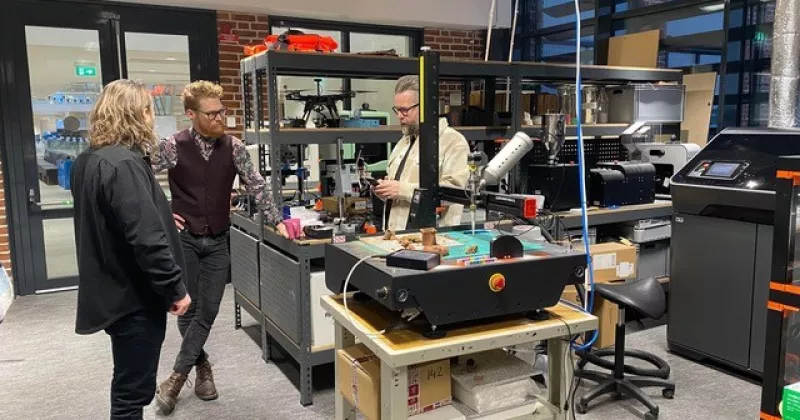How universities can better support mature students returning to education – Part One


Denise & Janine
Technological development and a changing employment landscape is currently a hot topic in education, and learning providers and learners alike are realising the value in upskilling and adaptability. This is likely to contribute to an increase in older learners returning to education and enrolling on a range of programmes that include everything from short courses to full degrees. The reason why older learners may choose to enrol on a degree programme can vary greatly, but often it is to advance their current careers or to change to a new career entirely. The opinions of two mature students studying at university offer insight into the learning experiences of older learners and can help providers to understand how to better support them.
Denise de Pauw is a Phd student studying with Lancaster University on a distance learning programme. Janine […] is a bachelor’s degree student studying with the Open University, an institution that specialises in distance learning. Mature students can face greater barriers to learning and an online model that utilises current technology can also produce challenges, as can a lack of supervision when returning to education after a long period of time. Universities and other education institutions should consider how learning can be experienced differently by older learners and ensure that they are prepared to offer them support when they need it most. In Part One of this two-part blog post, Denise's experiences will be shared; in Part Two, Janine's experiences and concluding advice for educators of mature students will be discussed.

Challenges faced by older learners
Denise described the challenge of returning to study after years away from it, explaining that mature students have to effectively "relearn how to study" and that the very act of studying can be difficult. School leavers are still in the rhythm of study and will likely find it much easier to adapt at university. She also noted that mature students have to "get to grips with advances in their subjects" and this can also take more time. Many consider university to be the most important time in their lives for building a strong social network – the idea that you make friends for life. Denise commented on the differing experience of older learners, stating that “It can be much harder to find a social network, especially if you commute, or have caring responsibilities.” Having a job or a family to care for means that mature students have to be much more organised and aware of time-management than their younger counterparts. Denise noted that the biggest challenge for her personally was learning to juggle work, study and family responsibilities.

Support from the supervisor
Denise had many positive things to say about her tutor and felt comfortable with the amount of guidance and support she receives. University encourages all learners to use their own initiative and to take a very active role in their education, often taking the lead as opposed to being directed by the teacher. Denise noted that she maintains regular contact with her supervisor by holding Skype meetings once a month. She could opt for more support, but she feels that the current approach works well for both herself and her tutor. She also said that they “have very good rapport, and have met occasionally in person” and that she attended an induction week on campus which helped her to settle in to her studies.
“The qualities I value most in a teacher are enthusiasm, generosity, subject knowledge and approachability.” – Denise de Pauw
Health and wellbeing initiatives
Recent figures on the Times Higher Education website stated that a third of Phd students suffer from mental health problems that can be directly attributed to their degree programmes. The health and wellbeing of students is another important current topic in education and institutions are becoming increasingly aware that they not only have to provide good mental health support, but that they need to ensure students are fully aware of the support on offer and actually seek it when they need it. Denise commented that she feels Lancaster University does a good job of publicising mental health support: “I’m aware of them and have discussed this with my supervisor. I think I’ve been really well informed all the way.”

Read Part Two of this blog post.
You might also be interested in:
- Four engaging apps for higher education tutors and teachers (blog) - covers four different apps currently on the market that can assist higher education teachers in their working lives and enrich the learning experience for their students
- Supporting Students from Refugee and Asylum Seeker Backgrounds (resource) - the Widening Participation and Lifelong Learning Journal has released a special edition focusing on Supporting Students from Refugee and Asylum Seeker Backgrounds in Higher Education
- Universities UK Framework for supporting higher education senior teams to develop a whole university approach to mental health (resource) - Universities UK has created a framework that can be used to implement an effective mental health and wellbeing strategy across UK universities and offers advice for tailoring the framework to suit individual universities
- Prevention and early intervention rather than ‘catch them when they fall’ approach (blog) - Ruth Spellman's Star Supporter Competiton 2019 round one entry, which describes the prominence of mental health issues among higher education students and aims to encourage opne conversations about mental health across the education sector
- JISC - Institution as e-textbook publisher toolkit (resource) - advises institutions on how to publish their own e-textbooks, as rises in textbook prices and restriction of library budgets is having a negative impact on learners




